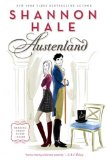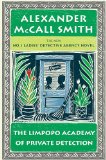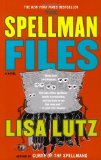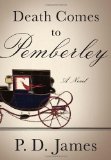Review of Austenland, by Shannon Hale
by Shannon Hale
Bloomsbury, 2007. 197 pages.
Starred Review
2007 Sonderbooks Stand-out: #2 Romance Fiction
I read Austenland when it first came out, but 2007 was a hectic year for me, what with finishing up my MLIS degree and working half-time and desperately needing a full-time job (and eventually finding one). So I didn’t get a lot of books reviewed that year, and never did post a review of this book.
This year, when Midnight in Austenland came out, it was a lovely excuse to reread Austenland and finally remedy that fault. I did not need to reread Austenland at all to enjoy Midnight in Austenland, since they involve different characters. But it did make a lovely excuse to enjoy this one again.
I am an avid and unashamed Jane Austen fan, and this book is one of my favorite take-offs on her work. The idea is simple: A theme park in England where women can pay to spend a few weeks immersed in a Jane Austen novel, to pretend they are really there.
Jane Hayes wasn’t rich enough to go there on her own steam, but her great-aunt Carolyn spots Jane’s hidden DVD of Pride and Prejudice starring Colin Firth, and Aunt Carolyn figures out Jane’s obsession. She has some wise words about figuring out what’s real.
But then Aunt Carolyn goes a little farther. In her will, she gives Jane an all-expenses-paid trip to Austenland. The trip is nonrefundable, so Jane decides to take it. She reflects:
Jane lay back down, but this time placed the throw pillow under her head. Okay, all right, she would go. It would be her last hurrah. Like her friend Becky, who’d taken an all-you-can-eat dinner cruise the night before going in for a stomach stapling. Jane was going to have one last live-it-up and then quit men entirely. She’d play out her fantasy, have a staggering good time, and then bury it all for good. No more Darcy. No more men — period. When she got home she’d become a perfectly normal woman, content to be single, happy with her own self.
She’d even throw away the DVDs.
Well, needless to say, things don’t turn out quite as Jane expects. Along the way, we’ve got all kinds of fun and of course some mistaken first impressions.
This is a light and fluffy book, and so much fun. Clearly, Shannon Hale filled it with love and respect for Jane Austen, and she pulled off an appropriate tribute that’s a wonderful book in its own right.
Now I just wish someone would really create such a place as Austenland, and that I could go!
Find this review on Sonderbooks at: www.sonderbooks.com/Fiction/austenland.html
Disclosure: I am an Amazon Affiliate, and will earn a small percentage if you order a book on Amazon after clicking through from my site.
Source: This review is based on my own copy, purchased from Amazon as soon as it was published.
Disclaimer: I am a professional librarian, but I write the posts for my website and blogs entirely on my own time. The views expressed are solely my own, and in no way represent the official views of my employer or of any committee or group of which I am part.
Please use the comments if you’ve read the book and want to discuss spoilers!











